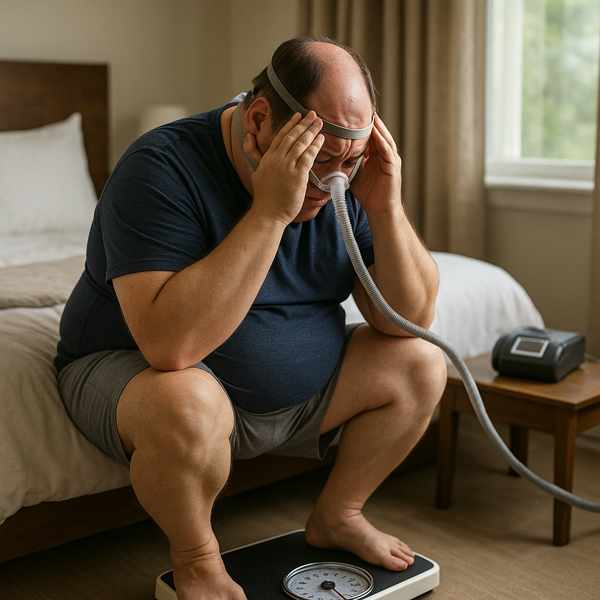
Sleep apnea is a serious sleep disorder that affects breathing during rest.
While not always a complete cure, weight loss often reduces the severity of sleep apnea significantly.
Causes and Symptoms of Sleep Apnea
Sleep apnea occurs when breathing repeatedly stops and starts during sleep.
Common symptoms include:
- Often reported by sleep partners
- Choking or gasping during sleep
- Excessive daytime tiredness
- Morning headaches or dry mouth
Why Excess Fat Matters
Carrying extra weight, especially around the neck and upper body, can put pressure on the airway during sleep.
Key risk factors include:
- More weight increases OSA risk
- Fat around the neck and jawline
- Can contribute to airway collapse
Can Weight Loss Cure Sleep Apnea?
Especially in individuals with mild to moderate OSA, lifestyle changes can be very effective.
Possible benefits of weight loss:
- Improved nighttime breathing
- Reduced risk of waking up during sleep
- Less need for CPAP machines or surgery
- Feel more rested and alert
However, weight loss may not cure sleep apnea in all cases — especially if anatomical issues or severe OSA are present.
Realistic Expectations
Even modest weight loss can have a big impact.
Tips:
- Start with small, achievable goals
- Sustainable changes make a difference
- Track your sleep changes
Natural Weight Loss Tips for Better Sleep
Effective strategies:
- Limit sugar and processed carbs
- Boosts metabolism and burns fat
- Helps open up the airway naturally
- Avoid alcohol and sedatives
Working with a nutritionist or sleep specialist can provide more personalized support.
When Weight Loss Isn't Enough
If symptoms continue, talk to your doctor about other options such as:
- obesity and sleep apnea Keeps airways open at night
- Oral appliances
- Surgery in severe cases
Is Weight Loss the Answer?
So, can weight loss cure sleep apnea? In many cases, it can help manage the condition.
Talk to your healthcare provider, make informed decisions, and take proactive steps toward better health and rest.